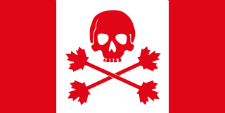 In January, a coalition of Canadian companies called on the country’s telecom regulator CRTC to establish a local pirate site blocking program, which would be the first of its kind in North America.
In January, a coalition of Canadian companies called on the country’s telecom regulator CRTC to establish a local pirate site blocking program, which would be the first of its kind in North America.
The Canadian deal is supported by FairPlay Canada, a coalition of both copyright holders and major players in the telco industry, such as Bell and Rogers, which also have media companies of their own.
Before making any decisions, the CRTC has asked the public for comments. Last week we highlighted a few from both sides, but in recent days two Internet heavyweights have chimed in.
The first submission comes from the Internet Infrastructure Coalition (i2Coalition), which counts Google, Amazon, Cogeco PEER1, and Tucows among its members. These are all key players in the Internet ecosystem, with a rather strong opinion.
In a strongly-worded letter, the coalition urges the CRTC to reject the proposed “government-backed internet censorship committee” which they say will hurt the public as well as various companies that rely on a free and open Internet.
“The not-for-profit organization envisioned by the FairPlay Canada proposal lacks accountability and oversight, and is certain to cause tremendous collateral damage to innocent Internet business owners,” they write.
“There is shockingly little judicial review or due process in establishing and approving the list of websites being blocked — and no specifics of how this blocking is actually to be implemented.”
According to the coalition, the proposal would stifle innovation, shutter legitimate businesses through overblocking, and harm Canada’s Internet economy.
In addition, they fear that it may lead to broad blockades of specific technologies. This includes VPNs, which Bell condemned in the past, as well as BitTorrent traffic.
“VPN usage itself could be targeted by this proposal, as could the use of torrents, another technology with wide legitimate usage, including digital security on public wifi, along with myriad other business requirements,” the coalition writes.
“We caution that this proposal could be used to attempt to restrict technology innovation. There are no provisions within the FairPlay proposal to avoid vilification of specific technologies. Technologies themselves cannot be bad actors.”
According to the i2Coalition, Canada’s Copyright Modernization Act is already one of the toughest anti-piracy laws in the world and they see no need to go any further. As such, they urge the authorities to reject the plan.
“The government and the CRTC should not hesitate to firmly reject the website blocking plan as a disproportionate, unconstitutional proposal sorely lacking in due process that is inconsistent with the current communications law framework,” the letter concludes.
The second submission we want to highlight comes from the Internet Society. In addition to many individual members, it is supported by dozens of major companies. This includes Google and Facebook, but also ISPs such as Verizon and Comcast, and even copyright holders such as 21st Century Fox and Disney.
While the Internet Society’s Hollywood members have argued in favor of pirate site blockades in the past, even in court, the organization’s submission argues fiercely against this measure.
Pointing to an extensive report Internet Society published last Spring, they inform the CRTC that website blocking techniques “do not solve the problem” and “inflict collateral damage.”
The Internet Society calls on the CRTC to carefully examine the proposal’s potential negative effects on the security of the Internet, the privacy of Canadians, and how it may inadvertently block legitimate websites.
“In our opinion, the negative impacts of disabling access greatly outweigh any benefits,” the Internet Society writes.
Thus far, nearly 10,000 responses have been submitted to the CRTC. The official deadline passes on March 29, after which it is up to the telecoms regulator to factor the different opinions into its final decision.
—
The i2Coalition submission is available here (pdf) and the Internet Society’s comments can be found here (pdf).





